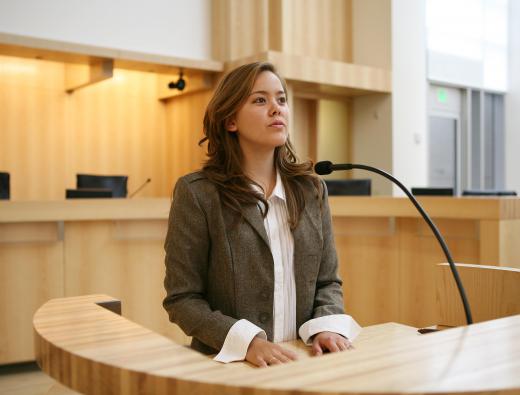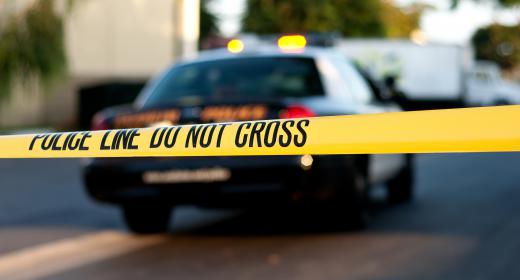What Does a Forensic Archaeologist Do?
 Mary McMahon
Mary McMahon
A forensic archaeologist uses techniques from the field of archaeology in forensics, the collection and analysis of evidence for legal purposes. Specialists in this profession have formal training in archaeology techniques and can use it to investigate crime scenes and assist law enforcement with the controlled collection of evidence, including human remains and objects left behind at the scene. Their work can be extremely valuable in cases where limited evidence is available.
Historically, police officers and crime scene technicians focused on documenting what they found at the crime scene, removing it, and securing it. In the process of excavating human remains from a grave, they might destroy valuable evidence or could fail to observe information of note. Archaeologists are trained to perform excavations and removals very carefully, and their attention to detail and scrupulous control of sites can be valuable in forensics.

A police force may call upon a forensic archaeologist if there are doubts about the age or origin of remains, to determine whether they are a criminal matter. Forensic archaeology can also be applied to assistance with clearly modern cases where a crime scene may be complex or have hidden clues. The team of forensic specialists can carefully document and excavate the crime scene, remove evidence, and take samples that may help determine time of death. These can include pollen, flowers, and other organic materials found at the site.

A forensic anthropologist can also be part of the team. The forensic archaeologist focuses on documentation and collection of materials, along with analysis of what is found, while forensic anthropology can be applied to determinations of time and cause of death. A medical examiner may not have much insight in the case of skeletal or partial remains. A forensic anthropologist has special training she can use to assist with identification of such victims and development of a definitive cause of death.
In the event a case goes to trial, a forensic archaeologist can testify about the removal, analysis, and handling of the evidence. He can provide information based on his examination of the evidence that may assist with a conviction. He can also testify for the other side, and may discuss errors with methodology that could invalidate results or bring them into question.
Students with an interest in forensic archaeology will need to attend college or university to become a forensic archaeologist. They can pursue traditional archaeology training to develop skills and may want to seek out a college or university with staff members who work in forensics and teach forensics classes. Not all archaeology programs provide information useful for medicolegal personnel who need to be able to maintain chain of evidence and testify effectively in court.
AS FEATURED ON:
AS FEATURED ON:












Discuss this Article
Post your comments